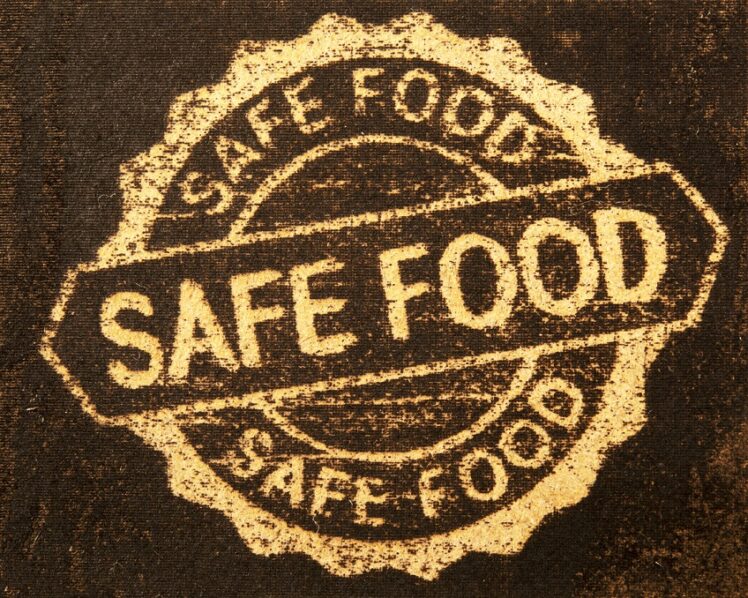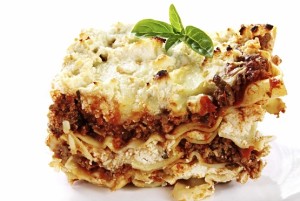
Talking about food and cooking is a lot more appealing to most people than talking about “science.”
The words “food” and “cooking” conjure up all manner of fun experiences tasting and eating great food, meals, and snacks. “Science”, on the other hand, probably brings up memories of school tests, diseases, and environmental disasters. Hardly the stuff of enjoyable conversation around the dinner table or anywhere else.
When it comes to facts though, science really matters. Science that brings the facts and dispels the myths and false beliefs.
MSG is a perfect example of why science matters. Monosodium glutamate, or “MSG” as it’s known, is perfectly safe. This is a fact, not a “belief.” Let’s allow the science to show us why MSG should not be feared but actually embraced.
Appetizer: The Inquiring Physician
Ironically, the myth about monosodium glutamate sprung from a letter to the editor, not a scientific study, published in the New England Journal of Medicine in 1968! The letter to the editor was written by Dr. RHM Kwok, who noted symptoms such as numbness and palpitations shortly after eating at a Chinese restaurant. Dr. Kwok posed a number of possibilities for this, only one of which was the presence of MSG in the meal, and inquired if other physicians had noted anything similar in patients.
 The media picked up on this and the name “Chinese Restaurant Syndrome” went viral – long before the Internet existed. There was absolutely no proof that MSG was producing Dr. Kwok’s symptoms, but it was easy to blame a single ingredient, and MSG quickly became the assumed culprit. Of course, many restaurant owners were terrified their businesses would collapse, so they immediately removed MSG from their cooking. This was a bad idea for a few reasons. Read on.
The media picked up on this and the name “Chinese Restaurant Syndrome” went viral – long before the Internet existed. There was absolutely no proof that MSG was producing Dr. Kwok’s symptoms, but it was easy to blame a single ingredient, and MSG quickly became the assumed culprit. Of course, many restaurant owners were terrified their businesses would collapse, so they immediately removed MSG from their cooking. This was a bad idea for a few reasons. Read on.
The Main Course: Science & Facts
MSG is a pretty simple substance. It has only two components: sodium, and glutamate. Sodium you’re probably familiar with as part of table salt. Glutamate is an amino acid, one of the building blocks of protein. Some amino acids are called “essential” because we need to get them from food. There are also “non-essential” amino acids which, while still important, are able to be manufactured by the body, but they’re also present in all protein foods.
 Glutamate is one of the non-essential amino acids. We make it ourselves. Indeed, we make about 50 grams of glutamate every day, more than you’d get from food. Diet provides only about half a gram of glutamate daily, even if you eat a lot of Chinese food. That’s one of the reasons glutamate is unlikely to cause the symptoms Dr. Kwok reported. His body, like ours, makes far more glutamate daily than anyone could possibly get from food.
Glutamate is one of the non-essential amino acids. We make it ourselves. Indeed, we make about 50 grams of glutamate every day, more than you’d get from food. Diet provides only about half a gram of glutamate daily, even if you eat a lot of Chinese food. That’s one of the reasons glutamate is unlikely to cause the symptoms Dr. Kwok reported. His body, like ours, makes far more glutamate daily than anyone could possibly get from food.
Fact: 95% of glutamate resides in the gut and is never absorbed.1 Its primary function is to serve the immune system, most of which is actually centered in the gut (another fact!). In that way, glutamate is VERY essential – we just don’t have to eat it to get it because we already make a lot of it. The glutamate in food is no different than the glutamate our bodies make. The sodium part separates easily from glutamate as soon as it hits the stomach and mixes with anything liquid, such as gastric juices, or whatever you might drink with your meal.
As for people all over who claim to have Chinese Restaurant Syndrome, this has been, as they say, “exhaustively” researched. Double-blind placebo-controlled studies are the gold standard here. These use people (known as “subjects” in research-speak) who report being sensitive to MSG. They’re given either an MSG dose or a placebo but neither the subject nor the researcher know who was given which. Consistently, subjects who got the placebo were just as likely to report symptoms as the subjects who got the MSG.
Just as important: even when people are given huge amounts of MSG, the glutamate levels in their bloodstreams remain stable. Why? Remember, 95% of glutamate stays in the gut and is not absorbed. So even if you consume large doses, blood levels are unchanged, further proof that eating a food containing MSG can’t be giving you symptoms reported by Dr. Kwok.
Dessert: Glutamate = Deliciousness!
 Chefs don’t call it glutamate, they know it as “umami”, the “fifth taste”, after sweet, salty, sour, and bitter. Many foods you already love are absolutely loaded with glutamate: mushrooms, tomatoes, corn, and many cheeses. Indeed, parmesan cheese is an absolute glutamate or umami bomb. Where would Italian dishes be without these foods? Yet no one reports symptoms from eating lasagna or pizza.
Chefs don’t call it glutamate, they know it as “umami”, the “fifth taste”, after sweet, salty, sour, and bitter. Many foods you already love are absolutely loaded with glutamate: mushrooms, tomatoes, corn, and many cheeses. Indeed, parmesan cheese is an absolute glutamate or umami bomb. Where would Italian dishes be without these foods? Yet no one reports symptoms from eating lasagna or pizza.
Take-home Treat
Not only does glutamate enhance the intensity of flavor in foods, gram-for-gram it’s actually 66% LOWER in sodium than regular table salt. If you want to lower your sodium intake, swapping out about 1/3 of the salt called for in recipes and substituting MSG would lower the sodium content, yet actually enhance taste. Check the recipes section at MSGdish.com for some great ideas.
References:
1 The Journal of Nutrition, Volume 130, Issue 4, April 2000, Pages 978S–982S, https://doi.org/10.1093/jn/130.4.978S
2 Food Sci Nutr. 2017 Nov; 5(6): 1039–1048. Published online 2017 Jul 13. doi: 10.1002/fsn3.499

